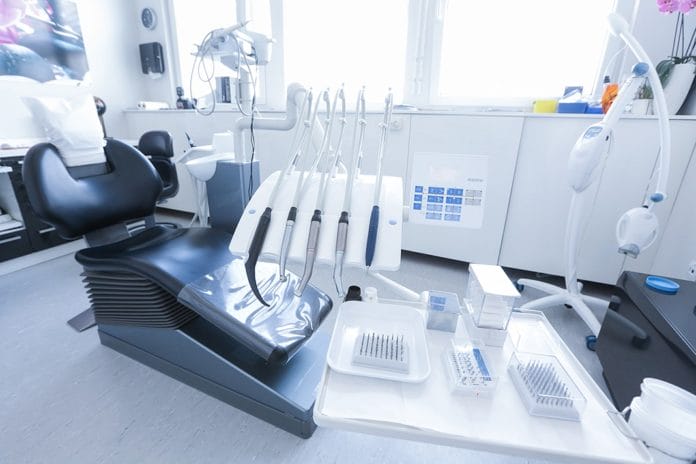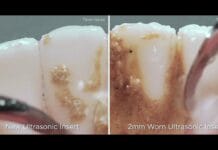Everyone knows that feeling you get when you walk into a space that is cluttered, crowded, or disheveled. A little anxiety starts to bubble up, and you immediately want to leave or start cleaning. You don’t want to have this feeling when you walk into your workspace, and you certainly don’t want your patients to feel that way. You spend almost as much time in your operatory as you do at home. Being organized and tidy is 100% necessary to make your day flow smoothly and be less stressful. Let’s take a look at some organization advice to make your day the best it can be.
Create Good Flow
Having your operatory set up in a way that you can move efficiently through it as you clean and set up is a must. When you can find everything you need without having to open too many drawers or cupboards helps you stay on time. You shouldn’t be spending so much time digging through supplies that you are constantly running over trying to flip your room over for the next patient. If you are subbing in an office, make sure to arrive early to familiarize yourself with the flow in the room you will be working in. This will take away one source of stress in an unfamiliar office. Another good point, if all the rooms are set up with supplies in the same place, everyone who works in the office will know where things are and be able to help you set up quickly and effortlessly. This works extremely well with assisted hygiene models as well, making it possible to jump from room to room without having to re-orient yourself.
Keep Your Room Stocked
Try not to run so low on supplies in your room that you have to excuse yourself from the middle of an appointment to get your items. You should never have to do this. Every morning (or at least once daily) you should take stock and fill items that are low. Just like in school, every operatory needs to be full, so the next person is ready to use it without having to run around for essential supplies. If you are fortunate enough to have an office rover, this is an easy task. If you have to plan time to do it yourself, make sure you do it in a time when you don’t have to rush and accidentally forget things before your next patient arrives. It’s easy to get lazy and think, “Oh, I’ll fill that later,” then later rolls around and now you have to grab items between patients. This can set you behind and start the downhill slide of time management issues with your schedule.
Make up Your Trays
If possible, have all the trays for each patient made up the night before and stored in a cabinet on a tray rack. This saves a considerable amount of time when turning over a room and you can make sure you have everything on the tray you need and want. If someone else is helping you flip a room, there are no mistakes on your tray that could leave you searching and having to take your gloves off to find items in the drawers. This is such a waste of time. Attention to detail is so important when keeping organized. Since this is what we do as hygienists, it should be easy to get in the habit of; setting up perfectly identical trays.
Decorate Your Space
If possible, bring in neutral, attractive decorations to make your operatory feel more like home. Patients notice these things and feel more at ease when the space looks like a room in a home instead of a sterile hospital room. It can ease anxiety and give them something to focus on other than the instruments. The key is to not have so much “stuff” that the room feels cluttered. A few key pieces will take the edge off a boring space. It will make the room feel comfortable and welcoming.
The Sterilization Room is Your Room Too
The sterilization area is everyone’s room. The more organized this room is, the happier the whole office is. Have a designated area for hygiene instruments, dental instruments, patient products, and lab cases. This makes everyone’s lives easier. There is nothing worse than being asked to get something for a coworker, going into the room, and having no idea where to look. Labeling drawers and cabinets with a label maker will make your life that much easier. No one should be scrambling around searching for something. If you are new to an office or subbing, plan extra time to look around and figure out where everything is. The less time you spend searching for things, the better your first days will be. You have enough to worry about, and you shouldn’t be worrying about something you can control.
Organize Your Notes
This is something many may not think about when it comes to staying organized. There are many items in your treatment notes that you may write for each patient. Headings, standard procedures, and abbreviations are some of the things you may type (or write) repeatedly. Let technology work for you. Create auto notes or templates to use fill in the blank style. This will save you time and create continuity throughout the office. When all the employees are on the same page, there are fewer mistakes, and there is a complete understanding of what happened during that appointment. This also allows for substitute hygienists who come in and to replicate your notes easily. They don’t have to guess how your office wants it done and there is nothing accidentally left out. This takes away just one more stress that can come in the dental office.
These ideas are just a few of many. Every person will have their own way of organizing, but it is important to come together as a team to make sure everyone is on the same page and knows where and how things should be. It may seem obvious to many, with many of these things being second nature. That is great! Step up and be a leader for organization if you find things in the office that need improvement. Change is virtuous if it is for the better of the entire office. At the same time though, don’t be the type of person that goes in and tries to change an entire system before you get to know it. There are many different ways to organize an office, with no one way being right and others being wrong. Ask before you move items or make changes to the space. Get to know your surroundings and prepare yourself for success in your workspace. Happy organizing!
Before you leave, check out the Today’s RDH self-study CE courses. All courses are peer-reviewed and non-sponsored to focus solely on high-quality education. Click here now.
Listen to the Today’s RDH Dental Hygiene Podcast Below:
SEE ALSO: How Clean Are the Waterlines in Your Operatory?
DON’T MISS: 10 Pieces of Advice for New Dental Hygienists











